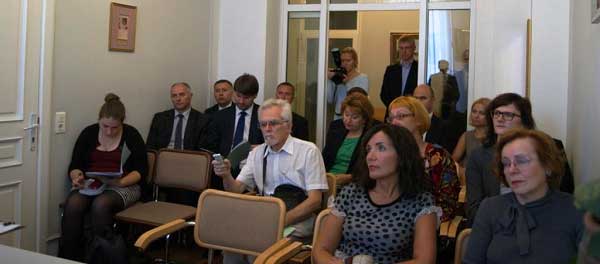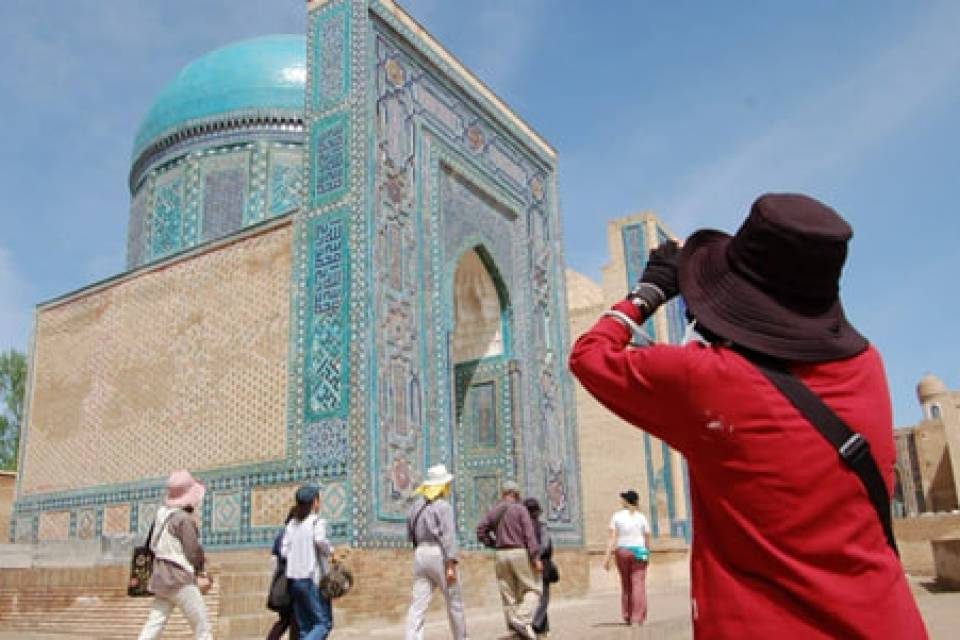The Embassy of our country in Riga hosted briefing on the “Month of the fight against drugs” in Uzbekistan.
The event was attended by representatives of the Interior Ministry, the Customs Department of the State Revenue Service, expert circles and mass media of Latvia.
Participants were informed about the aims and objectives of the month, the state policy in Uzbekistan and undertaken measures to combat drug trafficking and efforts to stabilize the situation of the republic, non-proliferation of drugs in the region.
In particular, it is noted that as a result of targeted measures to detect and prevent drug trafficking channels and complex operations to eliminate illicit drugs in 2014, the law enforcement bodies of Uzbekistan identified 6698 (in 2013 – 7680) the facts drug-related crimes, including the 3062 (3772), the fact of sales, 607 (623) – contraband, 1320 (1491) – the illicit cultivation of narcotic plants, 1709 (1794) – other drug-related crimes.
Participants appreciated the results of the work of law enforcement agencies to combat drug trafficking, highlighting the marked decrease in drug-related crimes in 2014 the facts. At the same time its stressed that a major factor in the negative impact on the drug situation in Uzbekistan is the neighborhood with Afghanistan, which to date remains the world’s largest producer of the drug.
Deputy Head of the Department of Industrial Policy Ministry of Interior of Latvia, the secretary of the Coordinating Council on Drugs and Drug Addiction under the guidance of the Prime Minister of the Republic of Latvia, Chairman of the EU Working Group on Drugs J.Bekmanis noted that the experience of Uzbekistan in combating drug abuse and illicit trafficking is very important and is great interest to Latvia and the world community as a whole. – After the withdrawal of international coalition forces from Afghanistan in 2014, the amount of opium grown in this country has risen sharply, reaching new record levels. This factor not only threatens the drug situation in Central Asian region, but also throughout the world, – he said.
According to him, there is a positive experience of cooperation of relevant structures of Latvia and Uzbekistan on the exchange of information and lessons learned in the fight against drugs. In this regard, stressed the importance of implementing the Agreement between the Government of the Republic of Uzbekistan and the Government of the Republic of Latvia on cooperation in combating organized crime, terrorism, illicit trafficking in narcotic drugs, psychotropic substances and precursors of June 17, 2002, and the activities set up in the framework of the joint document Commission, the second meeting was held in Tashkent on 27-30 May 2014.
The expert stressed that cooperation with Uzbekistan in the fight against drugs is also conducted in the format of the EU-Central Asia in the framework of the Action Plan for 2014-2020.
J.Bekmanis expressed the hope that the position of the Latvian and Uzbek sides will be the same on counteraction to attempts of some countries in Latin America to decriminalize the use of marijuana, and in some cases – drug trafficking. These issues will be discussed during the special session of the UN General Assembly on Drugs in April 2016 in New-York. According to him, Latvia believes that such actions of the Latin American countries is not acceptable and undermines the fundamental provisions of the UN Convention against Illicit Traffic in Narcotic Drugs and Psychotropic Substances.
According to other participants, carried out in Uzbekistan, advocacy and other work on the harmful effects of drug use, prevention of offenses related to the abuse of drugs significantly contribute to reducing the risks and the appearance of new lesions, deepening the situation. They stressed the importance of the work of the Government of Uzbekistan to ensure the fulfillment of international obligations in the field of drug control, anti-trafficking and the spread of drug addiction. As noted by the Latvian experts, it not only increases but also strengthens the credibility of the international community in our country.



























